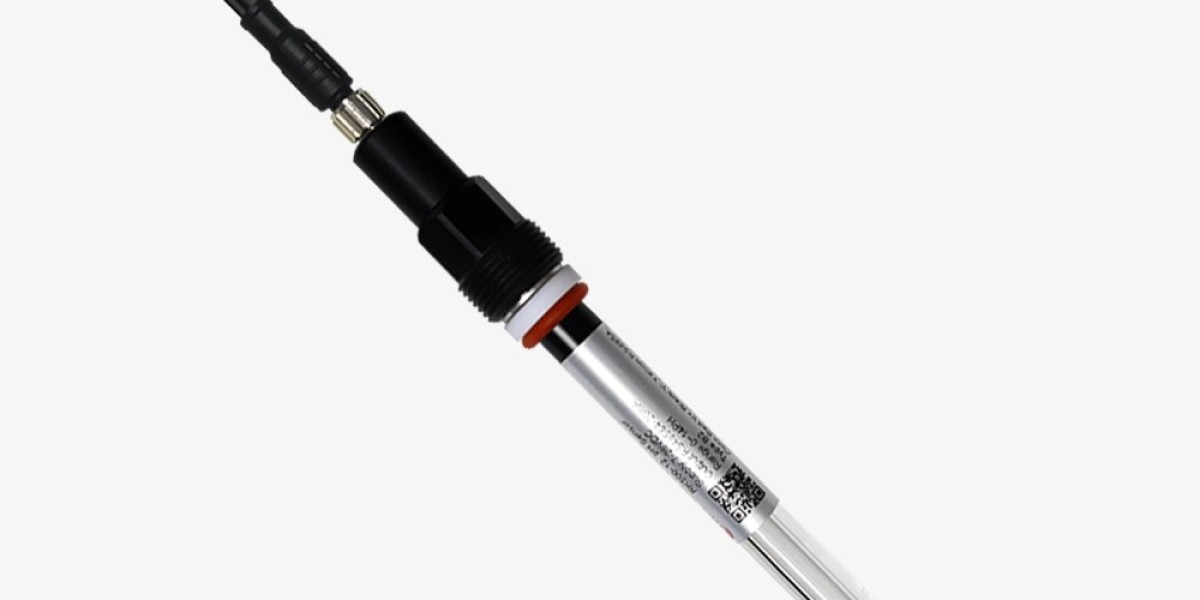In recent years, aquaculture has emerged as a vital component of global food security, providing a sustainable way to meet the increasing demand for seafood. As this industry grows, so does the importance of maintaining optimal water quality conditions to ensure healthy fish and shrimp populations. Rika Sensor’s pH sensors play a crucial role in modern aquaculture operations by offering precise, reliable, and real-time monitoring of water pH levels. These sensors help aquaculture farmers manage their aquatic environments more effectively, preventing conditions that could lead to disease outbreaks, poor growth, or mortality. By integrating Rika’s pH sensors into their systems, operators gain valuable insights into water chemistry, enabling them to make informed decisions that promote healthier aquatic life and enhance overall productivity.
Importance of pH Monitoring in Aquaculture
Water pH is a fundamental parameter affecting the health and growth of aquatic organisms. Fish and shellfish are particularly sensitive to changes in pH, which can influence their respiration, immune response, and overall well-being. In aquaculture systems, maintaining a stable pH—generally between 6.5 and 8.5—is essential for optimal biological performance. Fluctuations outside this range can stress aquatic animals, making them more susceptible to disease or affecting their feed intake and growth rates. Rika Sensor’s pH sensors provide continuous, accurate measurements, allowing farmers to detect even minor shifts in water chemistry. This proactive approach to water quality management ensures that corrective actions, such as adjusting aeration or chemical treatments, can be taken promptly, thereby safeguarding the health of the stock and improving yield outcomes.
Advantages of Rika’s pH Sensors in Aquaculture Settings
Rika Sensor’s pH sensor are renowned for their durability and high performance in aquatic environments, making them particularly suitable for aquaculture applications. These sensors are designed to withstand the rigors of constant immersion, high humidity, and variable water conditions often encountered in aquaculture ponds, tanks, and raceways. Their robust construction, featuring corrosion-resistant materials and sealed housings, ensures longevity and minimal maintenance. Additionally, Rika’s pH sensors deliver rapid response times and stable readings, which are critical during dynamic water quality fluctuations. They also come with temperature compensation features, recognizing that temperature variations can impact pH measurements. This combination of durability, accuracy, and ease of use makes Rika’s sensors ideal for the continuous monitoring necessary for effective aquaculture management.

Integration with Automated Systems for Better Management
Modern aquaculture operations increasingly rely on automation and data-driven decision-making to optimize their processes. Rika Sensor’s pH sensors are designed with connectivity in mind, allowing seamless integration with digital monitoring systems, control units, and automated dosing equipment. Many of their sensors feature standardized electrical outputs compatible with controllers and data loggers, enabling real-time remote monitoring. This means farmers can track water quality parameters continuously without needing to be physically present at the site. Automated alerts can notify operators immediately if pH levels deviate from acceptable ranges, prompting swift corrective actions. Such integration enhances operational efficiency, reduces manual labor, and minimizes the risk of water quality issues going unnoticed, ultimately leading to healthier stocks and higher productivity.
Supporting Sustainable and Eco-Friendly Aquaculture Practices
Sustainable aquaculture practices are increasingly vital in addressing global environmental challenges. Maintaining proper water chemistry, including pH stability, is fundamental to reducing the environmental footprint of aquaculture operations. Rika Sensor’s pH sensors contribute to sustainability by enabling precise chemical dosing and water management, which minimizes the overuse of chemicals or buffering agents. Accurate monitoring helps prevent the release of harmful substances into surrounding ecosystems, thereby protecting local biodiversity. Moreover, by ensuring optimal water conditions, these sensors reduce the likelihood of disease outbreaks, which often lead to the use of antibiotics or other chemicals. Consequently, aquaculture operations that utilize Rika’s pH sensors can achieve higher sustainability standards, demonstrating responsible stewardship of aquatic resources and promoting environmentally friendly practices.
Enhancing Fish Health and Improving Productivity
The ultimate goal of aquaculture is to produce healthy, high-quality seafood efficiently. Consistent pH monitoring with Rika’s sensors directly impacts fish and shellfish health by maintaining stable water conditions. When pH levels are within the optimal range, metabolic processes function smoothly, and the immune system of aquatic species remains strong. This results in lower mortality rates, better growth rates, and improved feed conversion ratios. Additionally, maintaining proper pH can enhance the efficacy of treatments for diseases, as many medicines are pH-dependent. The ability to continuously monitor and adjust pH levels ensures that aquaculture operations can sustain optimal conditions, leading to increased yields and better-quality products. This proactive management ultimately benefits producers by reducing losses and elevating the overall profitability of their operations.
In summary, Rika Sensor’s pH sensors are vital tools in modern aquaculture, offering precise, durable, and integrated solutions for water quality management. Their role goes beyond mere measurement; they support sustainable practices, improve fish health, and enhance productivity. As aquaculture continues to expand globally, the importance of reliable water quality monitoring devices like those from Rika Sensor will only grow. By ensuring that water parameters stay within ideal ranges, these sensors help create healthier aquatic environments, secure food supplies, and promote responsible, environmentally conscious farming practices. Their contribution is fundamental to the future of sustainable aquaculture, making them indispensable to industry professionals committed to innovation and excellence.







